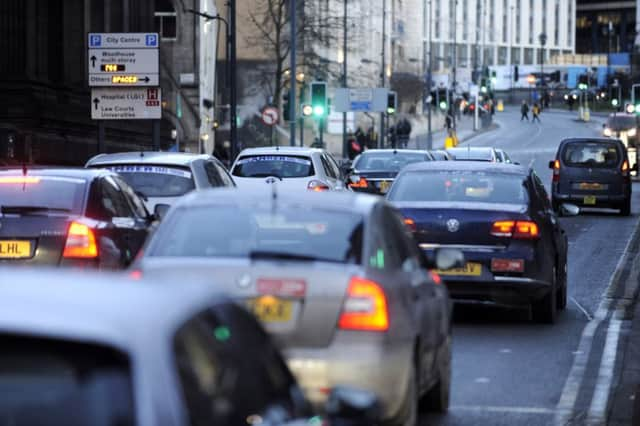Hundreds of criminals with sex offences, drug and violence convictions apply to drive taxis in Leeds


Information from the Disclosure and Barring Service (DBS) obtained using a Freedom of Information request shows that more than one in seven applications for a taxi/private hire licence was from an individual with a previous criminal conviction.
According to the figures, 10,402 checks were made against applications for taxi or private hire licences related to Leeds City Council between April 2013 and March 2018. Of these, 1,656 showed previous criminal convictions – almost 16 per cent.
Advertisement
Hide AdAdvertisement
Hide AdThese included 43 applications which showed previous sexual offences, 490 convictions for violent offences and 178 for drug-related crimes.
Leeds City Council said all its drivers in the city are subject to enhanced checks and regulations, while the head of the drivers’ industry body in Leeds says that those with serious criminal convictions would not be welcome driving taxis.
Ghulam Nabi, the head of the Eurocabs Hackney Carriage Association said: “We don’t want people with serious convictions working, especially where you are dealing with the public and you have to pick up vulnerable passengers – they have to get home in a safe manner.
“Leeds City Council have a rehabilitation period where if someone has been convicted of a minor crime, there can be a rehabilitation period afterwards depending on the offence.
Advertisement
Hide AdAdvertisement
Hide Ad“But if people have got serious convictions, we don’t want them driving taxis. We want the public’s trust, and we want them to feel safe when they are travelling with us.”
A Leeds City Council spokesperson said: “Our primary concern is always the safety of taxi and private hire passengers travelling in Leeds. We have clear and robust policies for granting taxi and private hire licences, recognised nationally as an example of best practice. These are publicly available on the council website.
“As our licensing annual report makes clear, particular attention is paid to ensuring all licence holders are ‘fit and proper’ to hold a licence within the Leeds Licensing District.”
Leeds city Council said all applicants undertake an enhanced Disclosure and Barring Service (DBS) check for the existence and content of any criminal record.
Advertisement
Hide AdAdvertisement
Hide Ad“Applicants must also pass an English comprehension test, a Hackney carriage and/or private hire knowledge test, disability awareness, safeguarding training and a customer care course to ensure they are able to communicate effectively with their customers, have a working knowledge of the law surrounding their trade and are familiar with the Leeds district.”
‘Safeguarding is at the heart of what we do’
The Disclosure and Barring Service said it works to ensure people are kept safe.
A spokesperson said: “The Disclosure and Barring Service (DBS) works to protect vulnerable groups in society, including children.
“Safeguarding is at the heart of everything we do at the DBS and we play a vital role in keeping people safe. Since our foundation five years ago, we have issued more than 22m disclosure certificates to help employers make safer recruitment decisions.
Advertisement
Hide AdAdvertisement
Hide Ad“Ultimately whatever a DBS check reveals the decision to employ someone rests with the employer, they must carry out their own assessment as to someone’s suitability to a particular role.”
According to the council’s taxi and private hire licensing policy, “category one” offences, such as murder, grievous bodily harm and sex offences, the council would almost certainly refuse a licence if the application was made within 10 years of the conviction. The policy says only in the most exceptional of circumstances would the granting of a licence would be considered for any of these types of convictions.
It said: “The minimum period of time to have elapsed would generally be 10 years from the date of conviction, final release or the end date of a suspended prison sentence. This would normally be the minimum period and there may be circumstances where the council would continue to resist an application.”